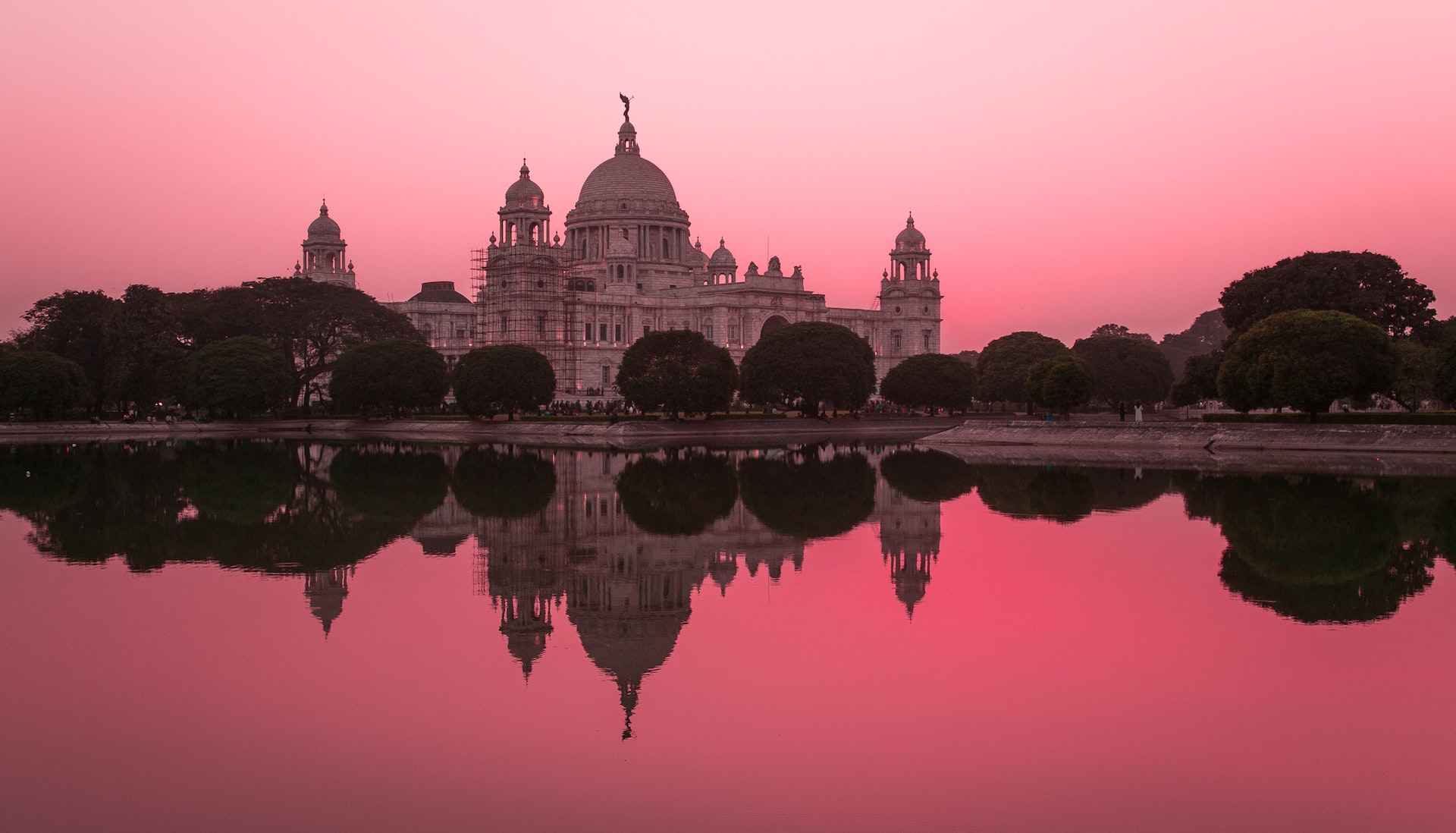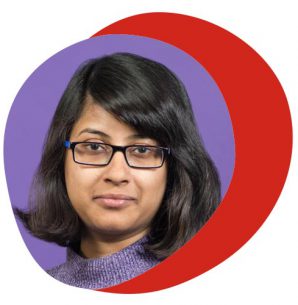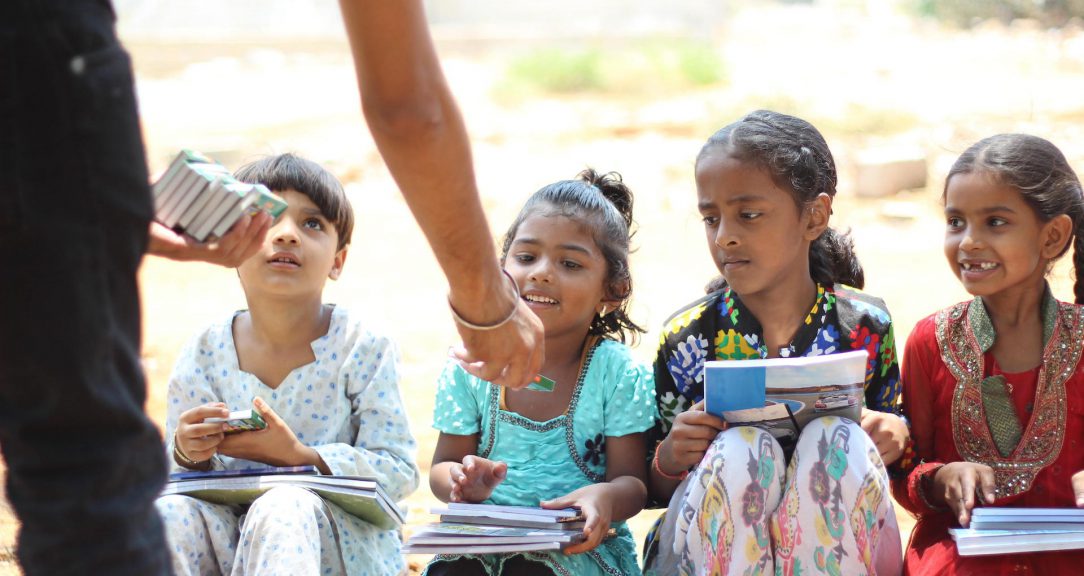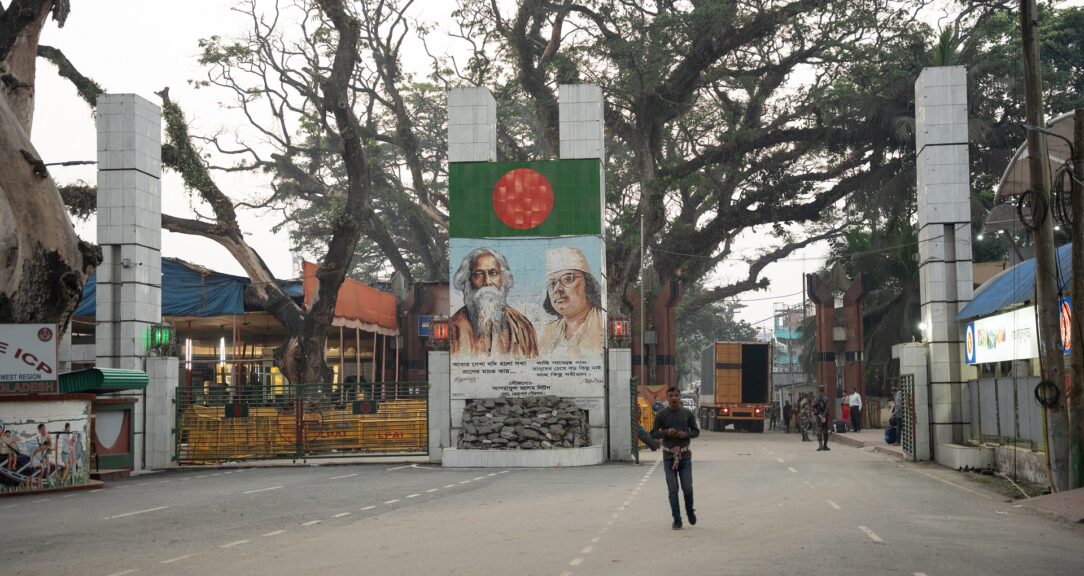Kolkata is a study in contrasts. Also known as the City of Joy, the megacity is a blend of old and new, of east and west, of clamor and quiet. Once upon a time, it was known as Calcutta and was the capital of British India. The remnants of that period give the city a timeless character — you see it in the glistening white marble Victoria Memorial and the bright red Writers’ Building. Along the muddy Hooghly River, Kolkata is the economic center of eastern India, with a slow but steady charm that can excite and overwhelm. We asked six people in Kolkata about their first and future paychecks.
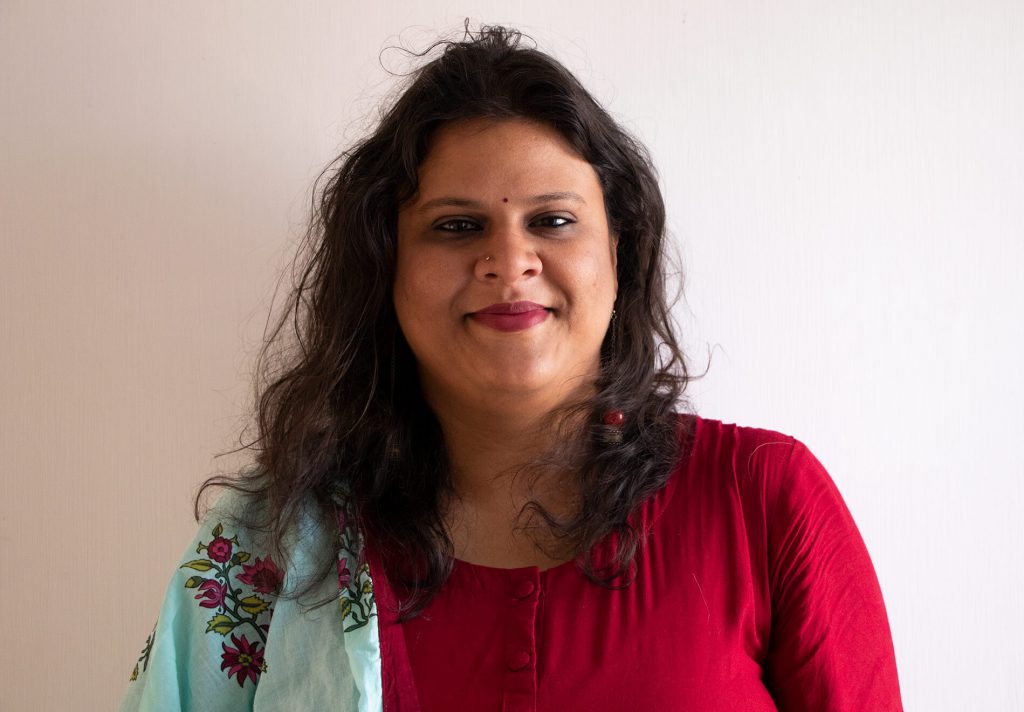
Samiksha Acharya, 35
Senior technical writer at a software company
It was the end of August 2007. I got an SMS from my bank informing me that my first-ever paycheck was deposited in my account. I was thrilled. I had my debit card ready. After work, I went to the nearest ATM. It was the first time I was using my debit card to withdraw money. I wasn’t sure how to do it, so I asked the security guard on duty for help. He showed me how to insert the card and when to type my PIN. I withdrew some money and went straightaway to buy some sweets and gifts for my parents and brother. I also handed over some cash to my mother. Even after all these expenses, I managed to save about four grand out of my INR 10,000 paycheck.
It was the first time I was using my debit card to withdraw money. I wasn’t sure how to do it, so I asked the security guard on duty for help.
My next paycheck is due on the last working day of the month. The money will get transferred directly to my bank account. I have to pay an insurance premium, my daughter’s school tuition fees, monthly installments for a loan I took from the bank, miscellaneous household expenses like buying groceries, medicines, and paying the maids. I also have to save money in recurring deposits and a government scheme to invest money in the girl child.
When I changed jobs after working for nine years in my first company, I got a 25% hike in salary. Saving has always been challenging for me. But with the new salary, I was able to save and start investing. It gave me a sense of relief. I have remitted money a few times. I sent money to my brother in Singapore a few times in 2019 because he was not well. The other time, the parents of a friend wanted to send her some money, and I remitted it on their behalf.
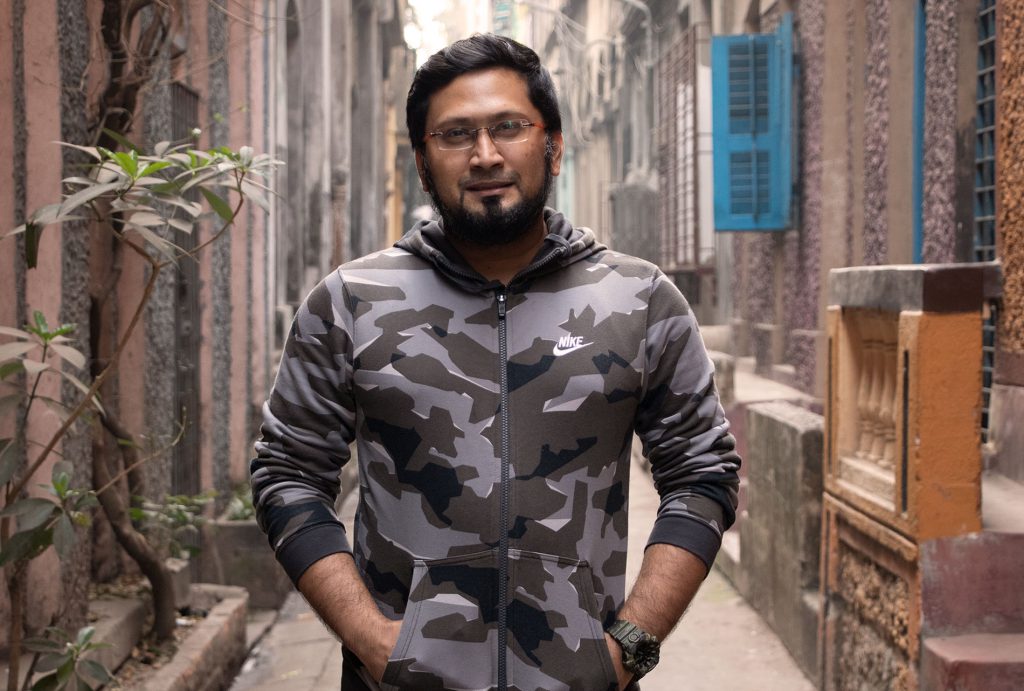
Sammya Brata Mullick, 32
Consultant and freelance photographer
I couldn’t ask my parents for money to cover my transportation fees during my college days. I worked as a private tutor for my pocket money, but the income was not enough. So getting a good paycheck was important for me to begin with. After I completed my bachelor’s degree, I was recruited directly from my university. The first paycheck that was more than INR 40,000 was very special. I received it in March 2010 in my bank account.
I purchased a Sony Cybershot with my first month’s salary. I felt truly financially independent for the first time.
My work was taking me across India, especially the northeastern part of the country, which is very beautiful. I wanted to buy a camera that would give me better pictures than a mobile phone camera. I purchased a Sony Cybershot with my first month’s salary. I felt truly financially independent for the first time.
My next paycheck will be credited to my account at the end of the month. I am saving money for an overseas trip at present. Every year there are changes to the pay structure. I am not sure how much exactly my next paycheck is going to be, but it will be a little more than my salary the previous year. I will know the exact amount once the performance ratings and appraisals come in as the month wears on.
There was a time when I wanted to pay a chunk of money towards a loan that I took to buy a flat. In September 2014, I got a bonus that helped me do that. In 2013, one of my friends was facing a huge financial crisis in Australia. He was not able to pay his monthly tuition fees at the university where he was studying. I sent him some money, and it made a difference. When some of my pictures get sold, somebody from the U.S., Australia, or Sweden, wherever the buyer is based, remit money to my account. In India, the concept of gifting pictures has not really caught on. It is very different for Indian people settled abroad. They want pictures to decorate their homes. They miss their home country, and they want a bit of Kolkata, a bit of Mumbai, a bit of India on their walls.
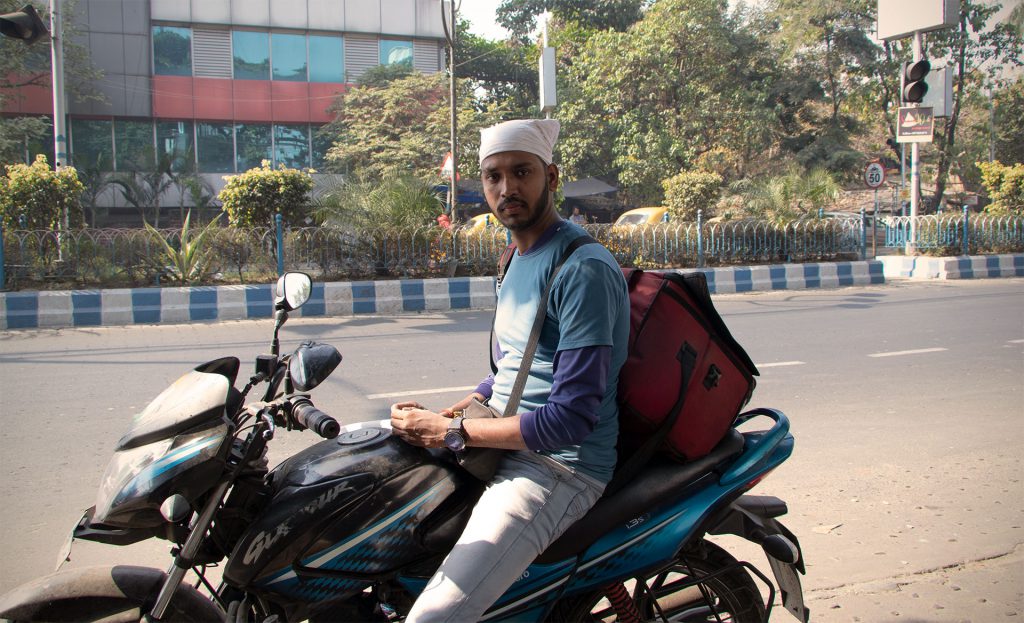
Rahul Chourasia, 24
Food delivery driver
My first salary was in 2013 — INR 600 in cash for delivering newspapers in the morning. I used to set out at 4:30 a.m. and collect the newspapers in central Kolkata near Chandni Chowk metro station. I cycled and distributed the papers in Park Street, Esplanade, Mullick Bazaar and the Park Circus area. I started doing this job to earn some money during my free time. There was no pressure to earn from home. Back then and even now, when I get my salary, I hand it over to my father, who is the head of the household. In my present job, I get weekly payouts in my bank account every Thursday for the previous week. I do not have a fixed salary. I work from 8 a.m. to almost midnight daily, and I get INR 25 for every delivery trip. The total amount depends on how many delivery trips I undertook. During busy days I can complete up to 20 or more orders a day. Other days, I make around 15 trips. The flow of orders can increase during festivals and special occasions like Christmas and the New Year.
I work from 8 a.m. to almost midnight daily, and I get 25 rupees for every delivery trip.
When my next salary is credited, some of it will go towards paying off loans taken for my younger brother’s education and for my sister’s wedding, and household expenses. I also save some money for future requirements. A few years ago, when I was a volunteer for a government organization, I used to get a monthly honorarium of INR 5,000. I saved for a few months and gifted a gold chain to my father. I will never forget the moment when he wore it around his neck. I was proud to be able to give that gift to him with my money.
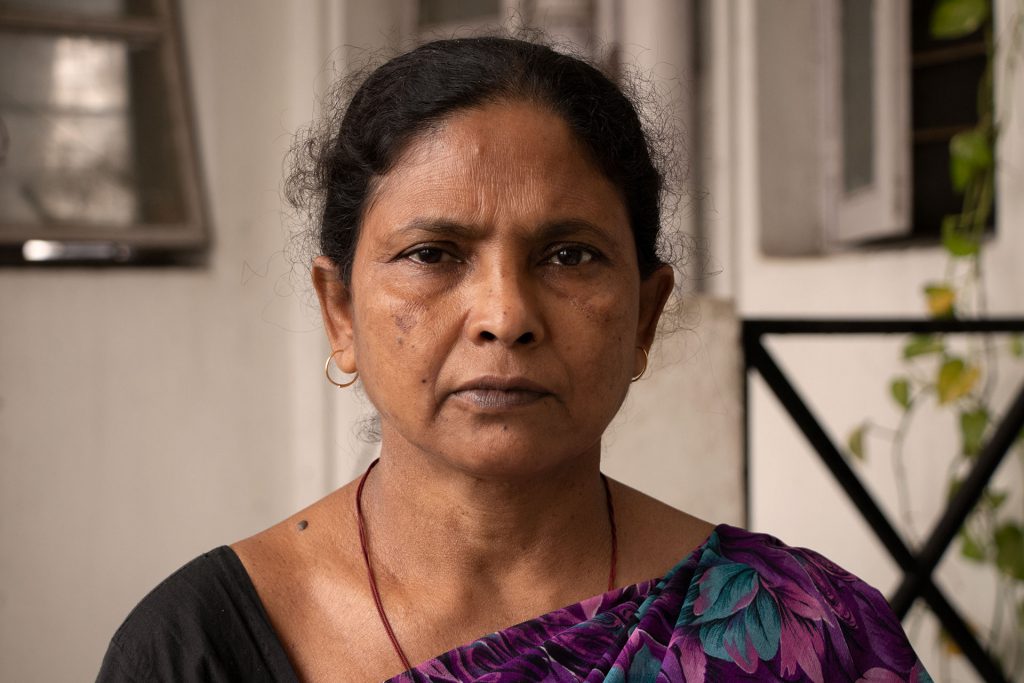
Arati Adhikari, 51
Cook for two private households
My husband was a day laborer in the construction sector. His earnings were not enough to meet our expenses. We lived in a rented house and had two small children, so I took up a job as a nursemaid. It was almost 30 years ago, I was employed by a hospital, and I used to get INR 13 per day. I got paid in cash when the patient settled the check before checking out. I do not remember the exact amount of my first salary. I remember that when the money came in, we were able to run the household a little more smoothly.
I was employed by a hospital almost 30 years ago and used to get 13 rupees per day. I got paid in cash when the patient settled the check.
My next pay will come in the first week of the month. I will get a total of INR 7,000 in cash for cooking for two families. With that money, I will pay rent, buy cooking gas, rice and groceries, and medical expenses for my younger son. He had to have surgery in 2015, and I had to take a sabbatical from work for two months to care for him. Towards the end of the sabbatical, there was barely any food left, and I was in debt. When I went back to work and got the first paycheck after the break, I heaved a sigh of relief.
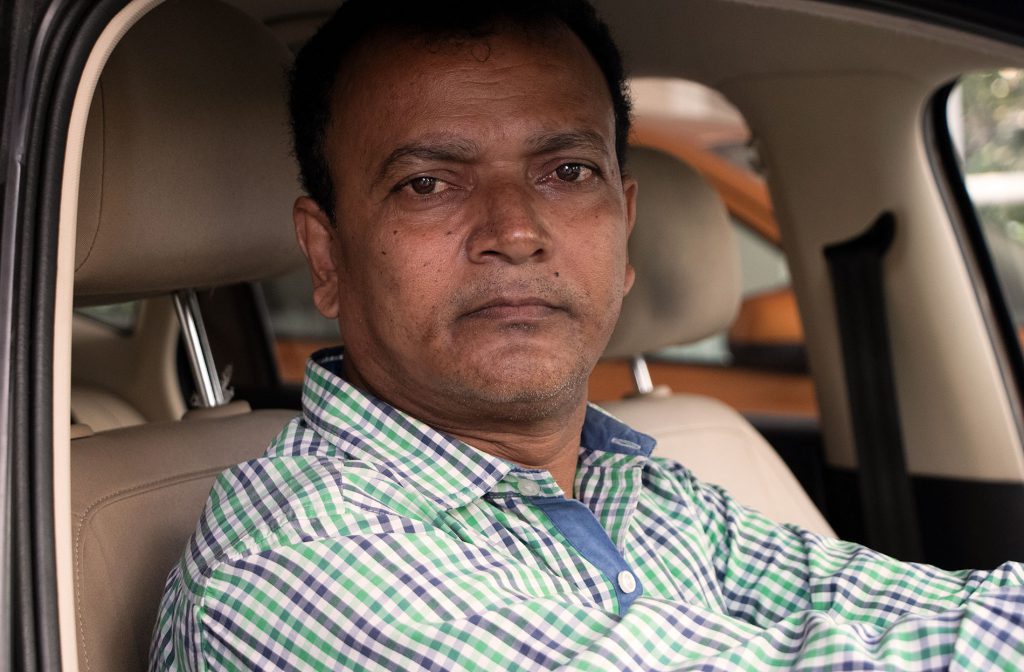
Amarendra Bera, 45
Private chauffeur
It was 1981. My father, who was a chauffeur, retired from his job so it fell upon me and my eldest sister to sustain the household. I took up a job as a clerk at a private firm. I worked eight hours a day, five days a week for a INR 2,800 monthly cash payment. My job was to serve tea, post letters, bring lunch for the employees and pass files from one person to the other. That first salary helped ease the financial burden, but I lost my job when the company went under. Fortunately, I had started taking driving lessons while I was working, at a driving school opposite my workplace. After leaving the clerk job, I sold vegetables for a while as I honed my driving skills. I have worked as a chauffeur for 35 years now.
During the three-month lockdown last year, I was scared for my family’s survival.
My next paycheck of INR 10,000 is coming in the first week of the month. My employer will transfer it directly to my account. I will buy cooking gas, pay the electric bill, cable bill, groceries, rent, and save some money in my savings account. During the three-month lockdown last year, I was scared for my family’s survival. My employer has just retired from his job, so I didn’t know what was in store. Luckily for me, he paid my full salary throughout the lockdown months.
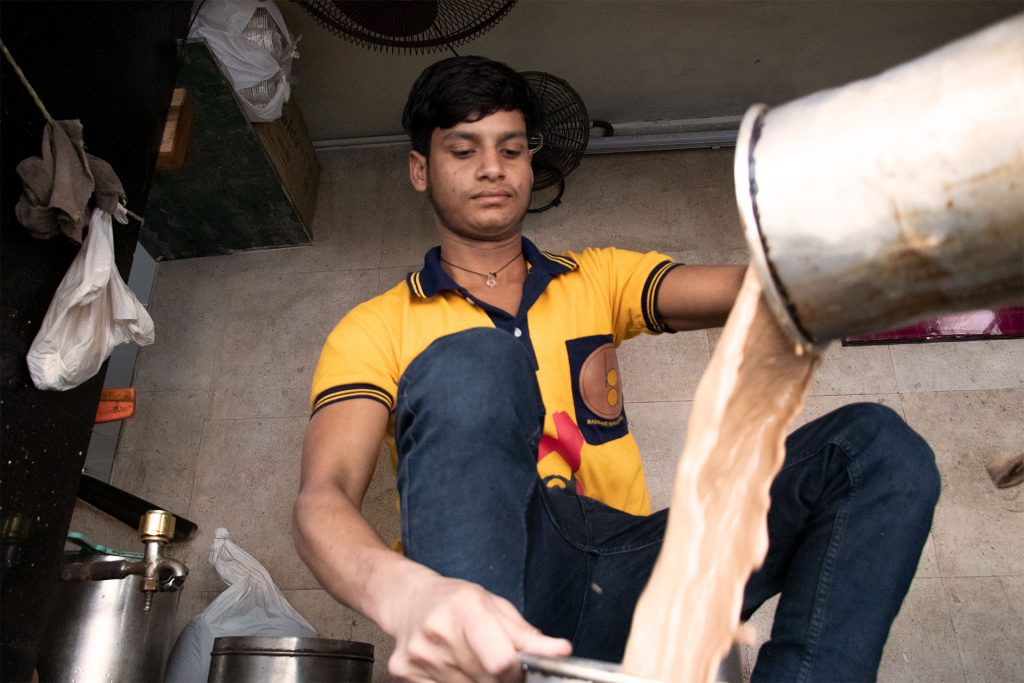
Pradeep Kumar Yadav, 22
Waiter at a popular roadside restaurant
I came with my elder brother from a village in Darbhanga district in Bihar province to Kolkata almost 10 years ago to work at the dhaba (roadside restaurant). It took me a month to get settled here. My first salary was INR 4,000, paid entirely in cash. My employer provides food and lodging. Back home in the village, my parents are sharecroppers. I have siblings who go to school. We don’t have our own house. So I sent the entire amount to my family.
I deposit most of the money in my father’s bank account and keep some if I want to eat something or go somewhere.
Nowadays, I get INR 6,000 plus 1,000 to 2,000 in tips. I deposit most of the money in my father’s bank account and keep some to buy clothes, recharge my cell phone and for other expenses if I want to eat something or go somewhere. During the lockdown, the dhaba was closed. I was at home and didn’t earn a penny for three months. My father took a loan to survive. After the dhaba reopened, a few months’ salaries helped pay back the loan.
Read more
Sign up to keep up to date with ReThink Q.
